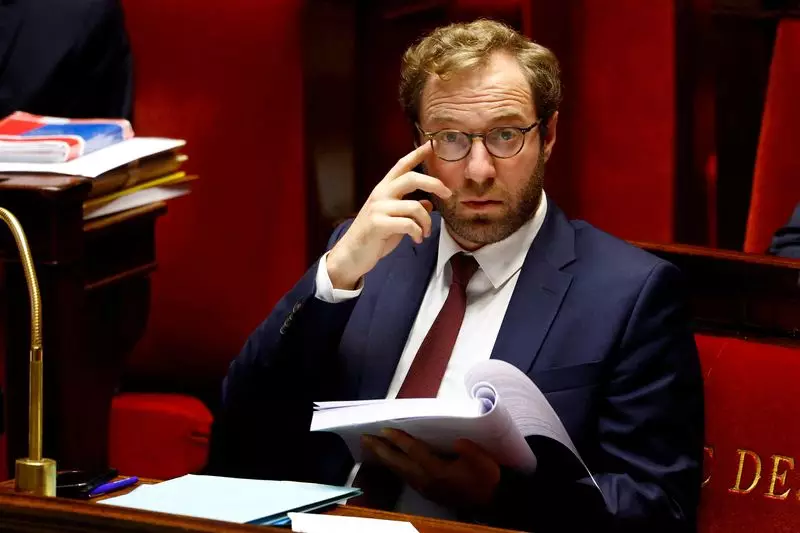The French government currently finds itself in a precarious position as it grapples with mounting pressure over its 2025 budget. At the heart of this turmoil lies Finance Minister Antoine Armand’s recent statements, reflecting a critical yet cautious approach to the ongoing negotiations with various political factions. With France’s budget deficit ballooning, a careful analysis reveals not only the economic challenges ahead but also the political ramifications that could drastically reshape the government’s trajectory.
The Deficit Dilemma
Throughout 2023, France’s budget deficit has soared to alarming levels, a trend that poses significant challenges for Prime Minister Michel Barnier’s fragile minority government. As public sentiment grows increasingly uncomfortable with the government’s financial strategies, the backdrop of growing investor skepticism has put French bonds under intense scrutiny. This has been exacerbated by the recent findings of Standard & Poor’s, a credit ratings agency that, while maintaining the government’s rating for now, warned of future uncertainties surrounding France’s ability to stabilize its fiscal outlook.
The emergence of Marine Le Pen’s far-right National Rally (RN) has further complicated Barnier’s tenure. With the RN requiring concessions to support the government, the lines have been starkly drawn. Le Pen’s demands, particularly regarding pensions and healthcare reimbursements, underscore the party’s strategic maneuvering to garner political leverage. This situation is exemplified by RN lawmaker Jean-Philippe Tanguy, who has publicly threatened to initiate a no-confidence motion unless the government’s proposals undergo significant revisions.
This deadlock illustrates a broader challenge that minority governments face: the constant need to negotiate with extreme factions that may have contrasting priorities but share a vested interest in governmental stability. Barnier’s decision to drop plans to raise electricity taxes, for instance, reflects a willingness to compromise—but with looming deadlines for potential political upheaval, such concessions may not be enough to appease the RN.
At the heart of the budget discussion is an ambitious plan to generate 60 billion euros ($64 billion) in savings, primarily through tax hikes and targeted spending cuts. However, the very measures intended to stabilize France’s fiscal health are now marked by contentious debates over their implementation. The RN’s insistence on aligning pension increases with inflation introduces a layer of complexity that could derail Barnier’s year-end fiscal targets.
Although some analysts endorse the notion of substantial spending cuts as a viable path to reducing the budget deficit, they also caution that failing to secure collaboration from political opposition can lead to further fiscal strain. Coupled with pressures to maintain social safety nets, the government appears to be walking a tightrope, balancing economic imperatives against potential backlash from the public and political detractors alike.
What is at stake transcends mere numbers; it encompasses the broader implications of political instability on national financial health. As Armand aptly pointed out, the potential absence of a coherent budget could precipitate a significant spike in the costs associated with financing French debt. The market’s reaction to mounting uncertainties reflects fears that France might struggle to keep its fiscal commitments, a sentiment that was amplified as the risk premium on government bonds soared to levels not witnessed in over a decade.
A government that cannot present a consistent and realistic budget not only risks losing financial credibility but also may find itself facing intense opposition, which could lead to a steep decline in investor confidence. Recent trends indicate that investors are growing weary of political maneuvering that seems to prioritize short-term survival over long-term fiscal responsibility.
As France treads into the weekend with a looming deadline for budget negotiations, the government must navigate a complicated landscape where financial prudence, political survival, and public sentiment intersect. The coming days are poised to be crucial in determining whether Barnier’s government can reconcile the competing demands of the far-right while also striving for fiscal stability. Without clear consensus and effective communication among all parties involved, France may well find itself facing a budgetary crisis with far-reaching implications. The stakes are high, and the need for a robust, collective approach has never been more critical.

